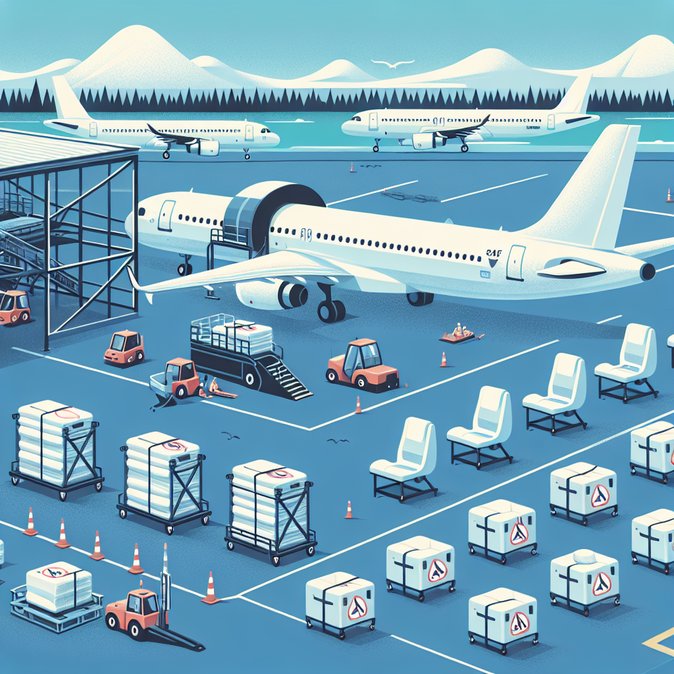
Finnair says it has solved the maintenance mishap that forced it to ground eight Airbus A321s and cancel some 70 flights between 13 and 21 October. On 22 October the flag-carrier announced an emergency programme to replace about 1 700 seat covers whose fire-retardant properties were compromised by an improper industrial-washing process. Six of the aircraft are due back in commercial rotation within a week, with all eight expected to fly again before the end of the month.
Background & root cause The problem surfaced when the seat-cover supplier notified Finnair that the detergent and temperature used during routine cleaning had never been certified against aviation flammability standards. Because the covers had been installed on eight short-haul A321s—workhorses on Nordic and intra-European business routes—the airline chose to ground them immediately, triggering 58 same-day cancellations and 12 forward cancellations that rippled through corporate travel itineraries worldwide.
Implementation plan Finnair has sourced new covers from multiple vendors and set up 24/7 installation lines in Helsinki and Copenhagen. The airline says it will give priority to high-frequency business destinations such as London, Stockholm and Brussels. During the downtime it has wet-leased Embraer E190s from Danish Air Transport and swapped long-haul A330s onto some European rotations, leading to chronic over-booking on affected days.
Practical implications for mobility managers • Expect residual re-timings through early November as A321 utilisation ramps up and wet-leases are unwound. • Finnair confirmed that EU261 and UK261 compensation applies because the fault is considered an ‘operational’ rather than ‘extraordinary’ circumstance. • Corporate clients are being urged to review GDS queues daily; some PNRs were auto-re-protected onto non-stop competitors via SAS or Norwegian, potentially triggering fare differences.
Strategic take-aways The episode underlines airlines’ growing dependence on third-party MRO supply chains. It also shows Finland’s regulatory agility: the national aviation authority (Traficom) approved rapid test protocols that let the first two aircraft re-enter service just 48 hours after the announcement. For Finland’s export-driven economy—where face-to-face meetings remain critical—restoring narrow-body capacity before the November conference season is a tangible win.
Background & root cause The problem surfaced when the seat-cover supplier notified Finnair that the detergent and temperature used during routine cleaning had never been certified against aviation flammability standards. Because the covers had been installed on eight short-haul A321s—workhorses on Nordic and intra-European business routes—the airline chose to ground them immediately, triggering 58 same-day cancellations and 12 forward cancellations that rippled through corporate travel itineraries worldwide.
Implementation plan Finnair has sourced new covers from multiple vendors and set up 24/7 installation lines in Helsinki and Copenhagen. The airline says it will give priority to high-frequency business destinations such as London, Stockholm and Brussels. During the downtime it has wet-leased Embraer E190s from Danish Air Transport and swapped long-haul A330s onto some European rotations, leading to chronic over-booking on affected days.
Practical implications for mobility managers • Expect residual re-timings through early November as A321 utilisation ramps up and wet-leases are unwound. • Finnair confirmed that EU261 and UK261 compensation applies because the fault is considered an ‘operational’ rather than ‘extraordinary’ circumstance. • Corporate clients are being urged to review GDS queues daily; some PNRs were auto-re-protected onto non-stop competitors via SAS or Norwegian, potentially triggering fare differences.
Strategic take-aways The episode underlines airlines’ growing dependence on third-party MRO supply chains. It also shows Finland’s regulatory agility: the national aviation authority (Traficom) approved rapid test protocols that let the first two aircraft re-enter service just 48 hours after the announcement. For Finland’s export-driven economy—where face-to-face meetings remain critical—restoring narrow-body capacity before the November conference season is a tangible win.
